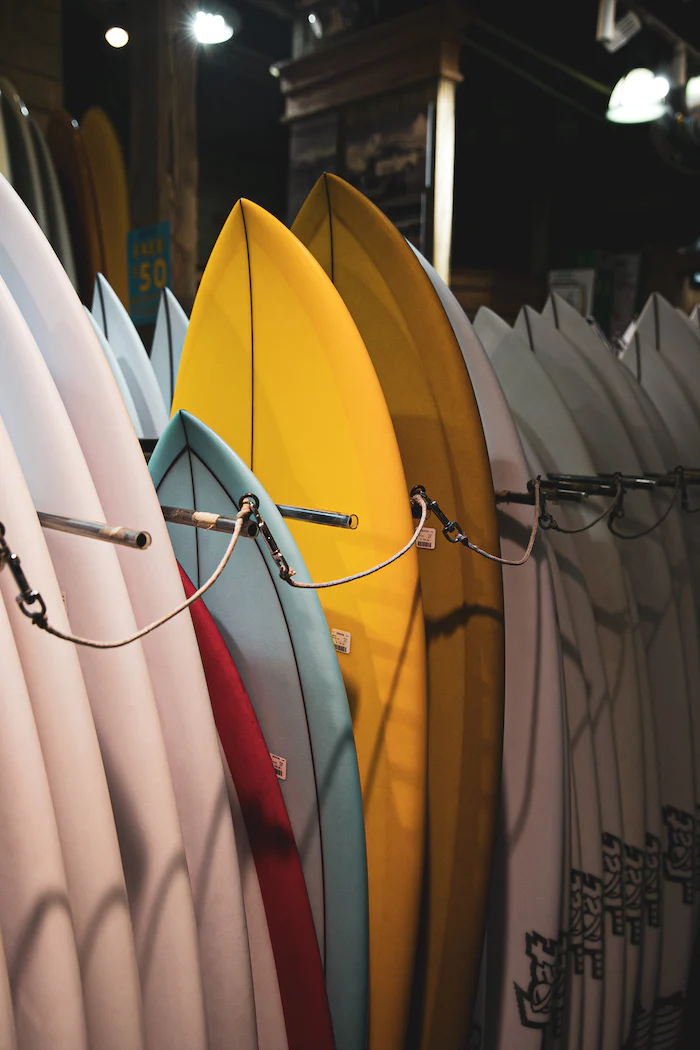Choosing what surfboard to use for your skill level is a critical decision that can greatly impact your surfing experience. The right board will help you progress and have more fun in the water. Here are some guidelines for selecting the appropriate surfboard based on your skill level:
- Beginner Surfers:
- Soft-Top or Longboard: These boards are excellent choices for beginners. Soft-top surfboards are stable and forgiving, while longboards are easy to paddle and offer a lot of stability. Both are suitable for learning the basics of paddling, catching small waves, and gaining confidence.
- Novice to Intermediate Surfers:
- Funboard or Mini Malibu: As you gain more confidence and start working on your turning and maneuvering skills, you can transition to a funboard or a mini malibu. These boards offer a balance between stability and maneuverability, making them suitable for progressing surfers.
- Intermediate to Advanced Surfers:
- Shortboard: Once you’ve mastered the basics and are comfortable riding various types of waves, you can consider transitioning to a shortboard. Shortboards are more responsive and allow for sharper turns and maneuvers. The choice of shortboard shape and size will depend on your style and the type of waves you intend to ride.
- Advanced Surfers:
- Performance Shortboard: Advanced surfers looking to push their limits and ride challenging waves should opt for a performance shortboard. These boards are designed for high-performance maneuvers and are typically smaller and less buoyant, requiring a higher skill level to handle.
- Big Wave Surfers:
- Gun or Tow Board: If you’re seeking the thrill of riding massive waves, you’ll need a specialized board, such as a gun or tow board. These boards are designed to handle larger surf and require advanced skills and experience.
- Custom Boards:
- As you progress in your surfing journey, you might want to consider custom-made surfboards. These can be tailored to your preferences and skill level, allowing you to have a board that perfectly suits your needs.
When choosing a surfboard, consider factors like your weight, height, fitness level, and the type of waves you plan to surf. Additionally, it’s a good idea to seek advice from experienced surfers or consult with a knowledgeable shaper who can recommend the best board for your specific needs.
Remember that the right surfboard can make a significant difference in your surfing experience, so take your time to choose one that matches your skill level and goals in the sport. As you progress, you may find that you want to experiment with different board shapes and sizes to further refine your surfing style.






